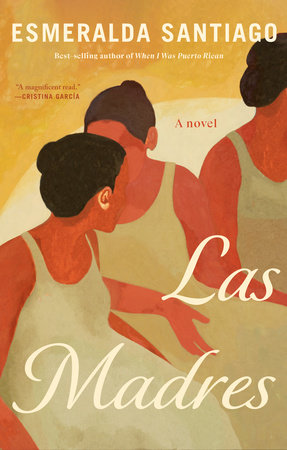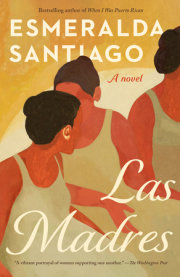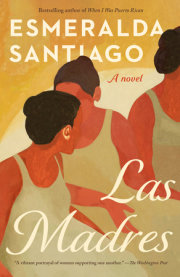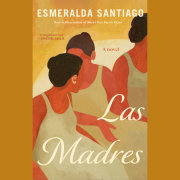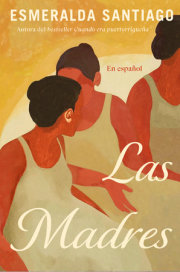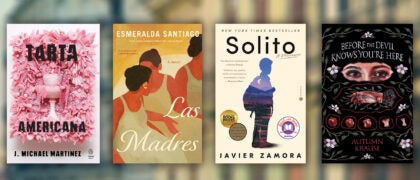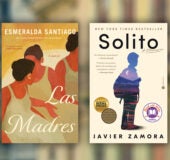Luz
July 4, 2017
After Luz Peña Fuentes settled in the United States, the accent mark over the n in Peña was left out in English. In Spanish her full name means “Light Rock Fountains” but without the tilde, Pena Fuentes means “Sorrow Fountains” or “Penalty Fountains” or “Pity Fountains” or “Shame Fountains.”
“Crossing an ocean made me sadder,” she tells her daughter, Marysol Ríos Peña, whose first name in English means “Sea-and-Sun.” “I’d rather be rock than sorrow.”
“You are who you believe you are, Mom. Your name and your identity are different things.”
“Sí, eso es verdad. That’s a good way to look at it.” Luz makes note of Marysol’s words in her journal.
At a clinic, Luz is annoyed when a nurse calls for Mrs. Pena. “Am I Señora Pitiful?”
“No, Mom. Far from it. You have a good life and you’re loved. Nothing to pity there.”
Luz doesn’t have to add that to the page. At fifty-seven years old, and in spite of some old injuries and age-related creaks and aches, she’s physically fit, has satisfying work, and lives comfortably.
On weekdays, Marysol walks Luz to Mi Casa Adult Daycare, around the corner from their home. There, Luz feeds patients, wheels them from one table to another when they want to play cards or dominoes, keeps them company in the garden behind the building, and three times a week, leads them in chair-bound exercises.
She often interrupts her tasks to add entries in her journal. When the pages are full, she shelves the journal next to those already arranged in her living room, the spines labeled by day, month, and year so she can later consult what she did when, with whom, and where. She reads her memory books with the same excitement and engagement she does beloved novels, finding new details with each reading. Sketches, drawings, cartoons, tickets from visits to a museum, the theater, the zoo, or the Botanical Gardens interrupt her looping handwriting. She lingers on the text or on the details that evoke a memory, a curiosity, a revelation.
This is my life, she’ll tell herself, and just as often, Is this my life? The statement does not invalidate the question.
After work and dinner, Luz enters her studio, formerly Marysol’s childhood bedroom. On the wall, Luz has lettered peña on a granite slab her friends brought from the abandoned quarry near their house in Maine. Now Luz prepares the materials for her next art project.
Soon after she met Danilo, the man who became her husband, Luz drew his portrait on a stone she picked up in Van Cortlandt Park. He liked it so much, she gave him a self-portrait for their first wedding anniversary. A year later, she painted Marysol’s image and for every birthday after that. Marysol now displays them in her apartment across the hall in their two-family house.
The portraits began as a hobby, but friends and neighbors begged Luz to paint their children or their favorite singers or movie stars. Soon, she had commissions from strangers. This week, she’s working on a series for a family who sent photographs and stones from their Vermont property.
Luz has laid out the stones on her table, has cleaned and prepared their surfaces, but before she turns the lights off in her studio, another one catches her eye. It’s green slate, one inch thick, ten inches long by three and a half inches wide, too big and distinctive for the family group. Its boundaries are like the map of Puerto Rico on her wall, the landmass wider on the left, shaped like a dog’s snout, and narrower toward what would be the canine’s tail. Inspired, she writes a reminder to create a portrait of the island with its rivers, lakes, and mountain ranges as a Christmas gift for Marysol. She scrolls through stock images of Puerto Rico on her computer, and is overcome.
It’s her last Navidades in Puerto Rico. She’s fifteen, a ballet dancer poised for her cue, the first notes of a sparkling Tchaikovsky suite imminent, her muscles vibrating. She’s about to perform solo on a shimmering stage meant to simulate fog, her tutu speckled with rhinestones, her satin pointe shoes secured by ribbons. She tries to hold on to the moment but it dissipates as quickly as it appeared.
Eighteen months after that performance, Luz was whisked from San Juan, a sixteen-year-old healing from physical and emotional trauma, mired in grief and loss, her memories diffused and disjointed. As the plane lifted into the sky toward New York, Luz left behind what happened that fateful summer of fireworks, Bicentennial celebrations, and perfect 10s in the Olympic Games.
Luz has forgotten so much, she’s sure she’s invented most of her life so she can say she’s Luz Peña Fuentes. On July 4, 2017, she vaguely remembers that dancing girl in Puerto Rico, strong as a rock, who in the United States is sorrowful, penalized, shamed, and pitiful.
Copyright © 2023 by Esmeralda Santiago. All rights reserved. No part of this excerpt may be reproduced or reprinted without permission in writing from the publisher.

